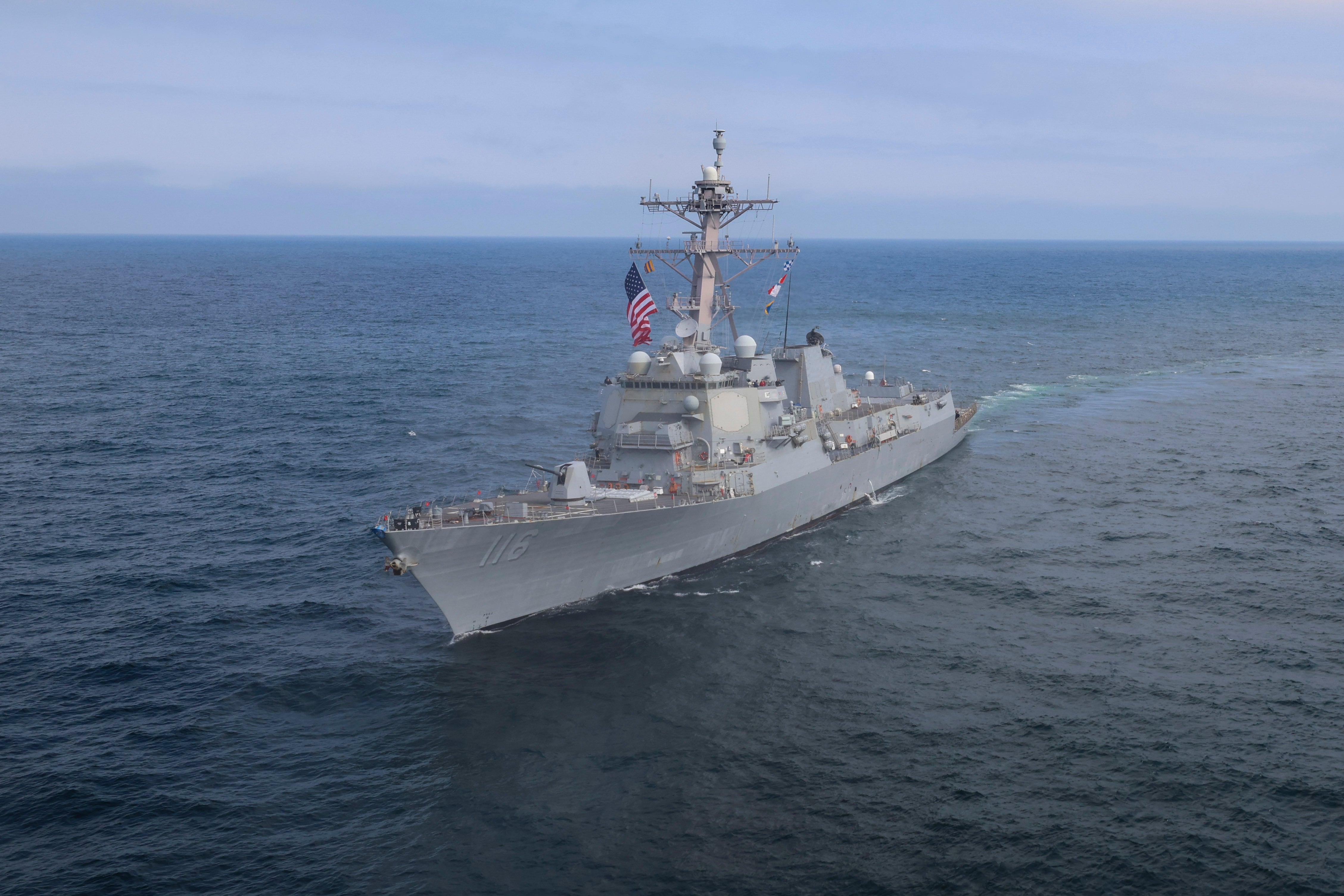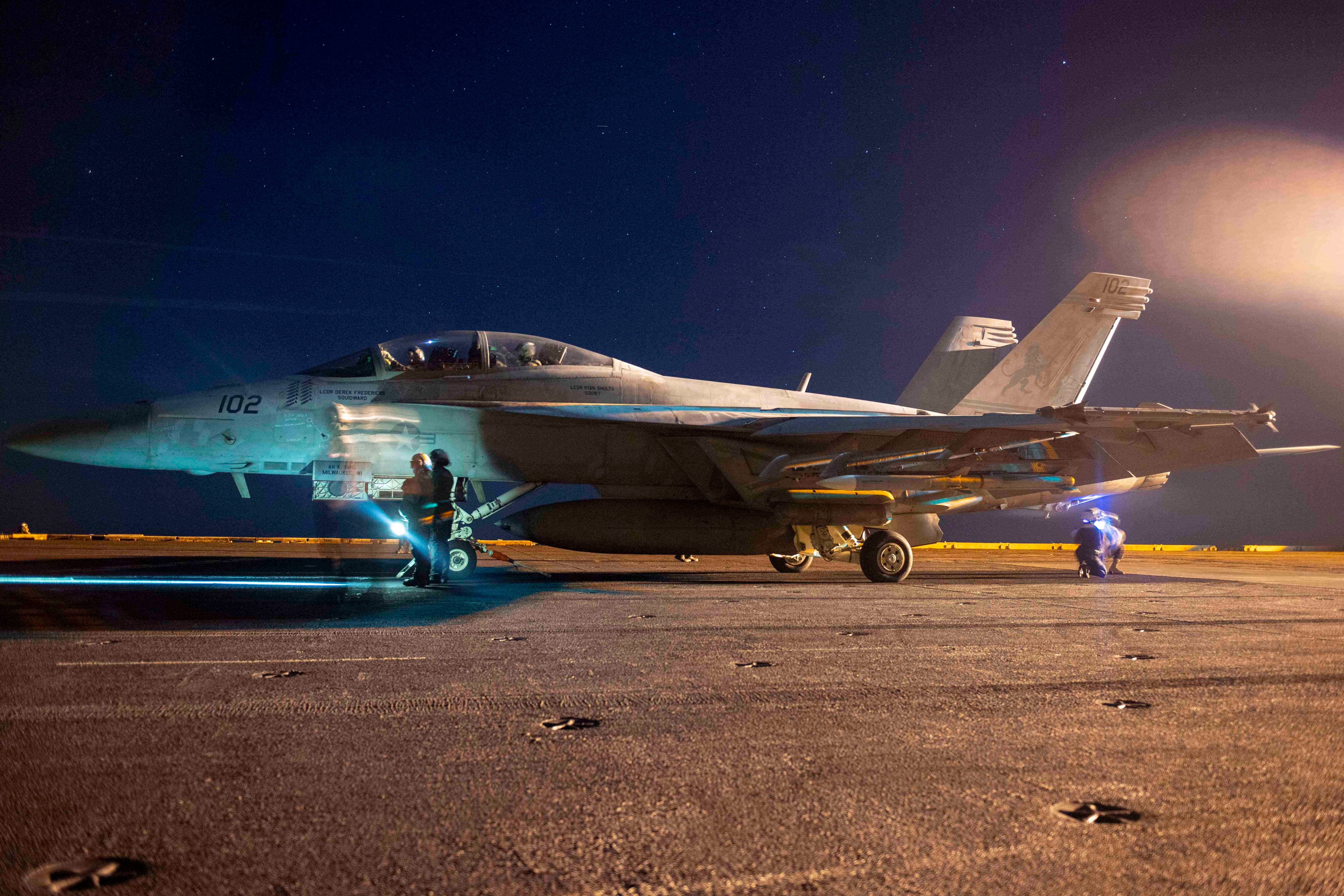The U.S. military helped defend Israel from Iranian-fired missiles Friday, a day after Tel Aviv launched a massive air attack on Iran’s military leadership and nuclear program.
A U.S. defense official, who confirmed the news, did not say what American assets were used and how many interceptors were required.
Earlier in the day, U.S. European Command deployed two destroyers to the eastern Mediterranean Sea ahead of the attack, which could help defend against guided missile strikes, another defense official said.
The officials spoke on the condition of anonymity to discuss military operations.
RELATED

The Israel Defense Forces said that Iran had launched “dozens” of missiles, including at civilian sites, Friday in retaliation for an attack the day before.
On Thursday, without U.S. assistance, Israel targeted senior Iranian military leaders and scientists involved in Tehran’s nuclear program in massive airstrikes across the country. Tel Aviv called the attacks a “preemptive” strike on Iran’s nuclear program, which had accelerated despite the Trump administration’s attempts to negotiate a deal and avoid such a confrontation.
President Donald Trump urged Iran to keep pursuing negotiations, hours before the retaliatory strike. Still, he has said that Iran acquiring a nuclear weapon is unacceptable to Washington.
“I gave Iran chance after chance to make a deal,” Trump posted on his Truth Social media platform Friday morning.
Israeli Prime Minister Benjamin Netanyahu spoke with Trump by phone Friday, the White House confirmed.
The U.S. military normally has around 30,000 troops in the Middle East, including equipment in Israel. Amid heightened tensions in the region, though, that posture has increased to around 40,000 personnel.
During an earlier airstrike campaign against Iranian-backed Houthi rebels, a terrorist group in Yemen, the U.S. moved military assets and air defense batteries to the Middle East to better protect its forces in case of an Iranian strike.
This week’s dueling strikes come after a year of unprecedented attacks between Iran and Israel — including previous missile attacks by Iran last April and October.
U.S. forces helped defend Israel in both cases, and Israel later retaliated for the October strike, destroying Iran’s most advanced air defense systems.
The direct Israeli operation, which Tel Aviv has said will continue, now threatens an even further escalation between the two countries, risking an all-out war that could drag in the U.S. military.
It has also concerned U.S. analysts and former defense officials that Israel’s true aim is regime change in Iran.
“More is on the way,” Netanyahu said in remarks Friday.
Noah Robertson is the Pentagon reporter at Defense News. He previously covered national security for the Christian Science Monitor. He holds a bachelor’s degree in English and government from the College of William & Mary in his hometown of Williamsburg, Virginia.




